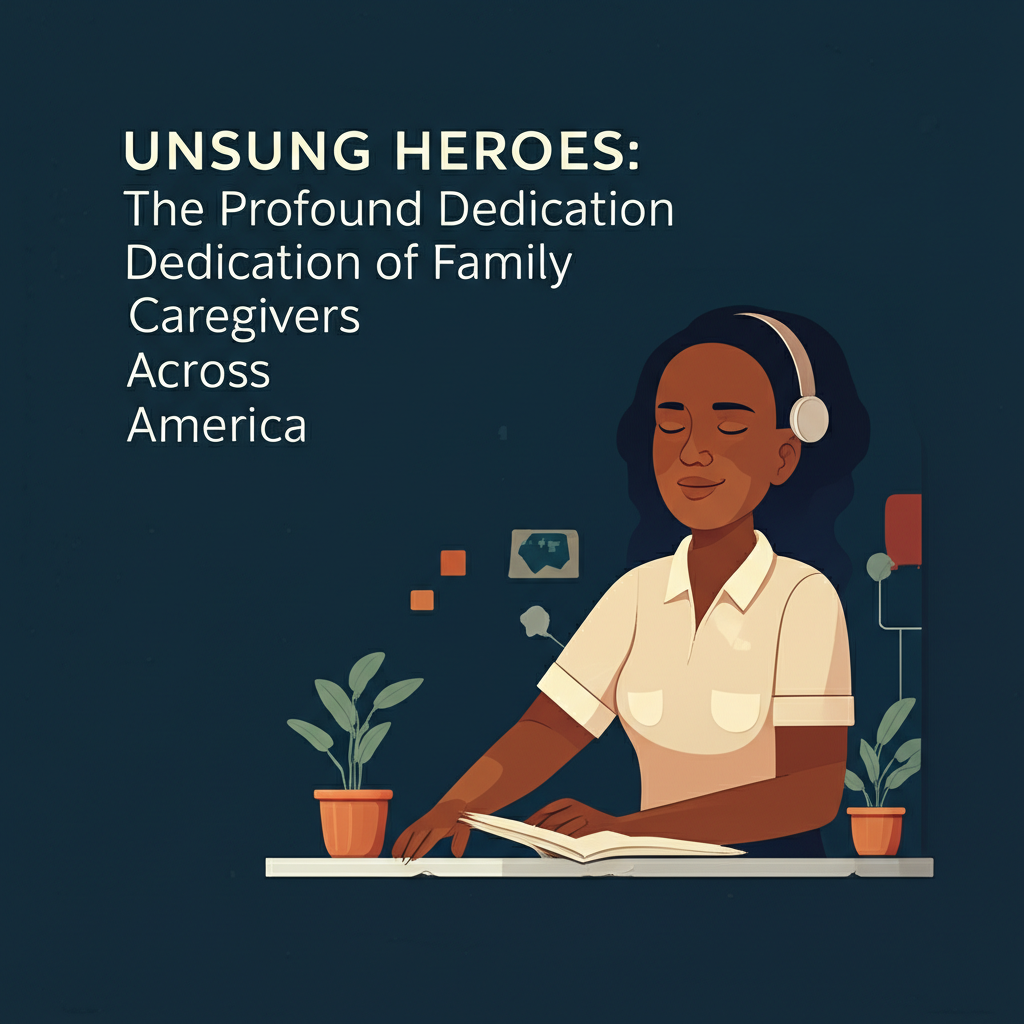
Meet Maurice White and Renee DeVigne, a Washington D.C. couple whose daily lives are a testament to the selfless dedication of millions of family caregivers nationwide. This post explores the immense challenges and unwavering love that define this vital, often unseen, role.
Navigating Love, Sacrifice, and Resilience in Elder Care
In the bustling heart of Washington, D.C., and across every corner of the United States, an invisible army of compassion works tirelessly. These are the family caregivers, individuals like Maurice White, 75, and Renee DeVigne, 68, whose lives are deeply interwoven with the needs of their aging loved ones. Their story isn't just a personal narrative; it's a window into the profound dedication, immense challenges, and often-unacknowledged sacrifices made by millions every single day. Their efforts represent a cornerstone of our healthcare system, providing essential support that enables seniors to live with dignity in their own homes for as long as possible.
Maurice and Renee's journey is a powerful example of what it means to be a family caregiver. From managing complex medical schedules to assisting with daily personal care, preparing meals, and providing companionship, their days are a testament to unwavering commitment. This isn't a 9-to-5 job; it's a round-the-clock endeavor driven by love, duty, and an intrinsic desire to provide the best possible care for those who once cared for them.
While incredibly rewarding, the path of a family caregiver is fraught with significant hurdles. These challenges often extend beyond the emotional and physical demands to impact financial stability and personal well-being. Some key difficulties include:
Emotional Toll: Caregivers frequently experience stress, anxiety, grief, and burnout. The weight of responsibility and witnessing a loved one's decline can be emotionally exhausting.
Physical Demands: Lifting, moving, and assisting with physical tasks can lead to chronic pain and physical exhaustion, particularly for older caregivers like Maurice.
Financial Strain: Many caregivers reduce work hours or leave jobs entirely, impacting their income and savings. Out-of-pocket expenses for medical supplies, transportation, and specialized care can be substantial.
Social Isolation: The demands of caregiving often limit social activities and personal time, leading to feelings of isolation and loneliness.
It's estimated that tens of millions of Americans serve as unpaid family caregivers. This immense workforce provides care valued in the hundreds of billions of dollars annually, essentially propping up a healthcare system that would otherwise crumble under the weight of escalating long-term care costs. Without these dedicated individuals, many elderly and disabled loved ones would face institutionalization or inadequate care.
Yet, despite their critical role, family caregivers often lack adequate training, resources, and formal support. Programs aimed at respite care, financial assistance, and emotional counseling are vital but often underfunded and difficult to access. Recognizing and supporting these caregivers isn't just an act of kindness; it's an economic and societal imperative.
Stories like Maurice and Renee's compel us to consider how we, as a society, can better support our family caregivers. This includes:
Increased Awareness: Shifting the perception of caregiving from a private family matter to a public health priority.
Policy Development: Implementing policies that offer financial relief, tax credits, and expanded access to home- and community-based services.
Accessible Resources: Ensuring that educational materials, support groups, and respite care options are easily accessible and affordable.

Mehebub Alam
Author
Share this post:
Stay up-to-date with the latest insights and news in technology and business.
By subscribing, you agree to our Terms and Privacy Policy.
Explore more articles from our blog.

Microsoft has announced that Halo Infinite will transition into maintenance mode later this month, a strategic move by 343 Industries to shift its focus towards the development of multiple new Halo games. This decision marks a significant turning point for the iconic sci-fi shooter series.

Best Buy's highly anticipated Black Friday Doorbuster sales continue with the release of 'Week 2' deals. Shoppers can now dive into a fresh wave of discounts across popular electronics, offering a prime opportunity to snag holiday gifts early and beat the rush.

Apple is reportedly gearing up to release a new, lower-cost MacBook in 2026, aiming to make its premium laptop experience more accessible and compete directly with the burgeoning market for budget-friendly notebooks, including Chromebooks. This strategic move could redefine Apple's presence in the education and mainstream computing sectors.